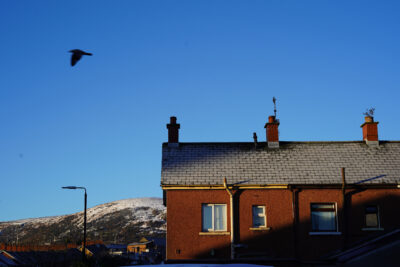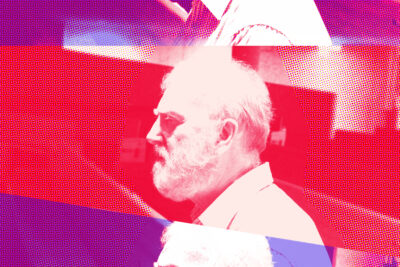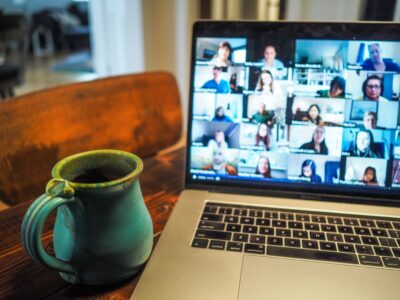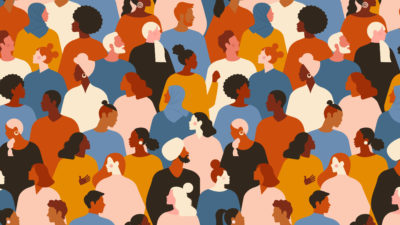Engaging with race in the Catholic Worker movement
This article originally appeared in the Autumn 2020 edition of the London Catholic Worker, available in full here.
Black Lives Matter is not just another movement for the Catholic Worker to make a mental nod to and then move on. Following the shocking killing of the unarmed George Floyd in the U.S, there is now an opportunity to probe and absorb this movement and discern what it is demanding.
The London Catholic Worker needs to engage with Black Lives Matter. The London Catholic Worker, in particular, supports destitute asylum seekers who are overwhelmingly people of colour. It must engage with movements for racial justice in order to raise consciousness and to deepen compassion for the asylum seekers it is seeking to support. Refugees find themselves facing a myriad of problems: the Kafkaesque systems of the Home Office, the hostile environment policy and of course the lived experience of racism. The London Catholic Worker cannot solve these unfortunate circumstances. But by seeking to understand racism in its overt and covert guises, there is an opportunity to deepen empathy with refugees and understand more fully what it is to stand in their shoes.
I work for an NHS mental health organisation as a communications professional. In an interview for the staff magazine during Refugee Week, I spoke to a psychotherapist who works with refugees and asylum seekers. When I asked her how the pandemic had affected refugees she told me that while the pandemic had affected her clients negatively, the indiscriminate killing of Floyd had been more significant. ‘Since this racist and horrific attack, the distress is far more severe than the distress of the pandemic,’ she explained. ‘A client told me that he could not bear hearing “I can’t breathe” because of his experience of being tortured back in his country; this has been distressing for them, triggering memories of ill-treatment.’
Covert racism could even come from live-in volunteers, albeit unwittingly. As well as deepening compassion for refugees’ lived experiences, engaging with critical race theory provides an opportunity for individuals and organisations to foster self-awareness. Armed with concepts like white privilege, white fragility and unconscious bias, volunteers can look inside themselves and identify their own potential complicity. This is not to say live-in volunteers are racist. But it is to say that engaging with these concepts provides an opportunity for reflection and self-scrutiny. If volunteers are to take their work seriously, they must bravely ask themselves if they are unknowingly racist themselves.
Let’s ask ourselves: Does a house of hospitality recreate or reinforce the archetype of the benign white saviour, rooted in colonialism and still seen in international NGOs?
I’ve said before, in these pages, that a house of hospitality is not a utopia. But developing the project must start from a position of examining race. The question we can ask ourselves is: Does a house of hospitality recreate or reinforce the archetype of the benign white saviour and subordinate that is present in our collective psyches? The white saviour archetype is rooted in colonialism and can still be seen in international NGOs and represented through mainstream films. The Catholic Worker movement is not necessarily free of this archetype. Often what struck me in house meetings was how reluctant the guests were to speak up and voice their needs. Is there a power dynamic at play which nullifies their sense of autonomy?
This movement needs to engage with concepts like ‘white saviour complex’ to engage critically with its own practices. Why is this important? Refugees have literally had the carpet pulled from under their feet and have had their choices taken away from them. They are in limbo and facing an uncertain future. Rather than being ‘saved’ by a house of hospitality, what they need is autonomy and to be afforded freedoms as far as possible. Many of the refugees have lived for several years at Giuseppe Conlon House. Could the London Catholic Worker offer these refugees the opportunity to become community members?
One of my early experiences of the house was observing the dinner table in which it appeared the white people sat on one side and the people of colour on the other. Over time, I came to accept this pattern as an expected part of human behaviour conveyed by the proverb, ‘Birds of a feather flock together’. I said to myself: Is this pattern necessarily a bad thing? If guests sit with those they are comfortable with and those they share a common native language with, then dinner can become a place of solace and home. On the other hand, if these patterns end up forging deeper connections over time with people only of their own colour, then that is problematic. A clarification of thought about race can engage with these matters.
I see all of this as an opportunity to enhance the practice of the Works of Mercy and not as a criticism. In my three years of being involved in the London Catholic Worker, I’ve attended one talk about race, which I gave myself, on the movement to decolonise the National Curriculum, which is incidentally gaining more traction following the Black Lives Matter demonstrations. It isn’t a coincidence that, as one of the few volunteers who is a person of colour, I was the one to convene this talk. Racism is a lived experience and it is unlikely that a white volunteer would come forward and take an interest in organising around these themes. The Catholic Worker movement needs to actively come from a place of compassion and consciousness and proactively position race as a priority and as part of its ongoing agenda.
The Black Lives Matter movement is an opportunity. So where to start? London Catholic Worker can organise a clarification of thought or invite local racial justice activists over for dinner. As part of that critical reflection, volunteers can read beyond canons by white, middle-class privileged men. The political is personal, everyone knows that. Some books which come to mind are The Autobiography of Malcolm X or Frantz Fanon’s White Skins, White Masks. More contemporary works are Brit(ish) by Afua Hirsch and Why I’m No Longer Talking to White People about Race by Reni Enno-Lodge.
On a personal level, for me, Black Lives Matter is a defining movement of my life. The movement has raised my own consciousness as a woman of colour. It has made me realise that I too have tried to fit in and hide parts of myself. But the brown colour of my skin won’t hide. And even if I were to try and scratch it off, it would grow back the same colour. The movement has allowed me to be seen for who I truly am. It has allowed me to talk about race at work, where I see a real willingness and openness to engage with concepts like white privilege. I feel that the global pandemic has softened people’s hearts. A raw and genuine feeling of indignation has swept through all sectors of society following the killing of George Floyd. May he rest in peace.
Related Stories

Inner State: Passionist Life in North Belfast
North Belfast is a community that has seen immense trauma over the past century – defined by political forces beyond its control.
May 30 2024

To Illumine the Mind: the Catholic diaspora in Paris
In Paris, Martin Coffey leads a church overflowing with working class immigrants. The picture of religion in France, he tells us, is not what you think.
Mar 01 2024

Positive Faith present a World Aids Day service, ‘The Reason for Hope’
Reflections, music and scripture as well as opportunities for sharing on this World Aids Day online service.
Dec 01 2023





